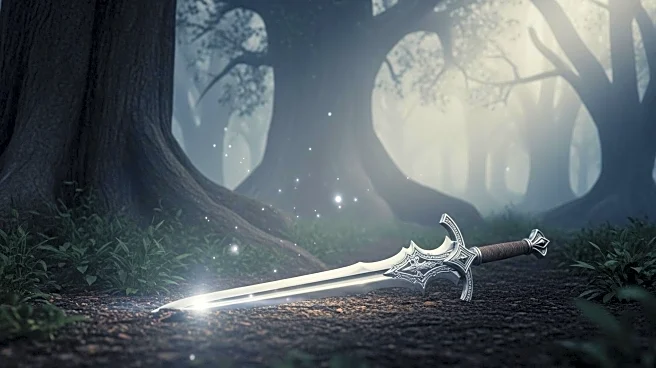What's Happening?
Liam Hemsworth has revealed that he stepped away from social media and the internet for most of 2024 due to the backlash following his casting as Geralt in Netflix's The Witcher. The recasting occurred after Henry Cavill, who played Geralt for three seasons, exited the show. Hemsworth described the online reaction as a distraction, stating that he had to put aside the noise to focus on his passion for storytelling and acting. Despite the challenges, Hemsworth expressed excitement about taking on the role and shared his admiration for The Witcher video game series, which he has played multiple times. The Witcher Season 4 is set to premiere on Netflix on October 30, continuing the story of Geralt, Yennefer, and Ciri as they navigate a war-torn continent.
Why It's Important?
The recasting of Geralt in The Witcher is significant as it highlights the intense scrutiny and pressure actors face when stepping into established roles, especially in popular franchises. Hemsworth's experience underscores the impact of fan reactions on actors' mental health and their professional decisions. The situation also reflects broader industry trends where casting changes can lead to substantial public discourse, affecting both the actors involved and the show's reception. As The Witcher continues without Cavill, the show's success will depend on Hemsworth's ability to win over fans and maintain the series' popularity.
What's Next?
The Witcher Season 4 will debut on Netflix on October 30, with Hemsworth taking on the role of Geralt. The season will explore the characters' journeys amidst a raging war and numerous enemies, with the potential for new alliances. As the series progresses, fans and critics will closely watch Hemsworth's portrayal and the show's ability to sustain its audience. The series is set to conclude with Season 5, and its future success may influence Netflix's decisions regarding potential spin-offs or related projects.
Beyond the Headlines
The backlash faced by Hemsworth highlights the cultural dynamics of fandoms and their influence on entertainment media. It raises questions about the ethical considerations of fan interactions with actors and the responsibility of studios to support their cast during transitions. The situation also reflects the evolving nature of celebrity and public engagement in the digital age, where social media plays a critical role in shaping narratives and perceptions.










